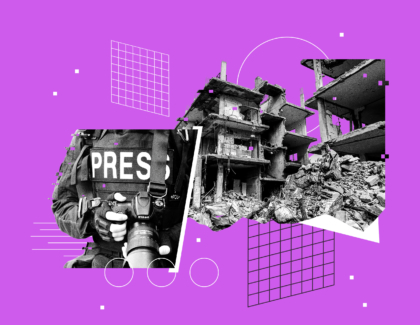Sign up for the daily CJR newsletter.
They spoke of domestic abusers, punitive judges, and dirtbag comedians––people Brian Goldstone, a journalist and anthropologist, called “less than immediately sympathetic protagonists.” But among panelists of “Uncertain States: Narrative Journalism and Its Limits,” at Columbia’s Heyman Center last week, the consensus was that the best stories are those that reflect the complexity of human experience.
One panelist, Adrian Nicole LeBlanc, author of Random Family (2003), is working on a new book about standups, and she’s allowed herself to feel a range of emotions about her subjects. “I hate them,” she told the crowd. “I feel hurt by them. But then I say to myself, ‘They didn’t start this relationship, you started this relationship.’” (She told me later: “I love them—at one point, I even hated one of them.”) It’s complicated, and LeBlanc believes that imagining a binary between good and bad is useless. “I’m just interested in the full range of human capacity,” she said.
ARCHIVES: Susan Orlean on archiving her life, and not keeping up with her subjects
When Matthew Shaer, a contributor to the New York Times Magazine, was reporting on a judge who jailed poor Mississippians who could not pay fines, he expected to find villainy. But things weren’t that simple. “I wish I could say he was twirling his mustache relishing in putting poor people in jail,” Shaer said. The audience laughed. “He wasn’t. He was just an old dude in Mississippi doing what everyone else had done before him.”
Sarah Stillman, a staff writer at The New Yorker and the director of the Columbia Journalism School’s Global Migration Project, argued that reporters owe their sources, and readers, complexity. “I can’t think of a more clear moral challenge in this particular moment when it comes to immigration reporting than not falling into these really easy binaries of the worthy and the unworthy,” she said. A DACA recipient can have “crappy grades,” for instance, and remain compelling and sympathetic.
Shaer felt the same way. “Often, when you’re writing about impoverished communities, there’s a tendency to hold up someone as holy or something, because they’re poor and this is their experience—‘Oh they’re so wonderful, and these are the horrible things that have happened to them,’” he said. “When in fact, they’re just people, they’ve got their own problems, they do drugs, they yell at their kids.” Those details enrich a story. “You make it more complex,” he went on, “more realistic.”
An ethnographer asked the panelists how to tell a story about systemic failures when detailing a personal story. “I thoroughly believe that people respond, most readers, to people’s stories,” Shaer replied. “Not necessarily when they have to take their medicine.”
Lizzie Presser, a reporter at ProPublica, offered an alternative. Make social and historical context “a character, in and of itself,” she suggested, which turns a reader’s focus “away from the individual choices that people made.”
LeBlanc, too, has found it best to embrace humanity’s messiness. A reader of her forthcoming book hated the characters so much that finishing it became impossible. “Oh good,” LeBlanc thought. “I’m hitting something.”
ICYMI: The shady roots of ‘quid pro quo’
Editors note: This piece has been updated for clarity.
Has America ever needed a media defender more than now? Help us by joining CJR today.







